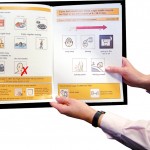
The healthcare needs of people with learning disabilities have been well covered in the literature. The recent confidential inquiry into premature deaths found delays or problems with diagnosis or treatment and problems with providing appropriate care in response to changing needs. Annual health checks have been shown to be effective in identifying previously unknown health conditions, but uptake is patchy.
A new tool has just been launched to help measure and assure the quality of health outcomes delivered by services for people with learning disabilities – The Health Equality Framework, or HEF. This has been developed by the UK Learning Disability Consultant Nurse Network.
The tool has been developed to measure the extent to which services minimise peoples’ exposure to the known determinants of health inequality.
In response to repeated service failures the 2012 report ‘Strengthening the Commitment’ called for learning disability nurse leaders to develop an objective measurement framework to demonstrate effectiveness of learning disability nurse inputs at the individual and service levels.
The Health Equalities Framework tool HEF can be used to establish a clear consensus around service priorities using indicators that focus on social, biological, behavioural, communication and service related factors. There is also a freely available electronic interface (the eHEF), which wlll enable data to be aggregated across services, professionals and teams to analyse variations in service outcomes.
In addition to the Nurse consultants, the Improving Health and Lives Learning Disabilities Public Health Observatory and the National Development Team for Inclusion have been involved, as well as the National Valuing Families Forum, the National Professional Senate, local and national advocacy groups and commissioners.
In addition there is supplementary commissioning guidance, based on the HEF, a guide for families and an easy read guide and tool for people with learning disabilities themselves.
